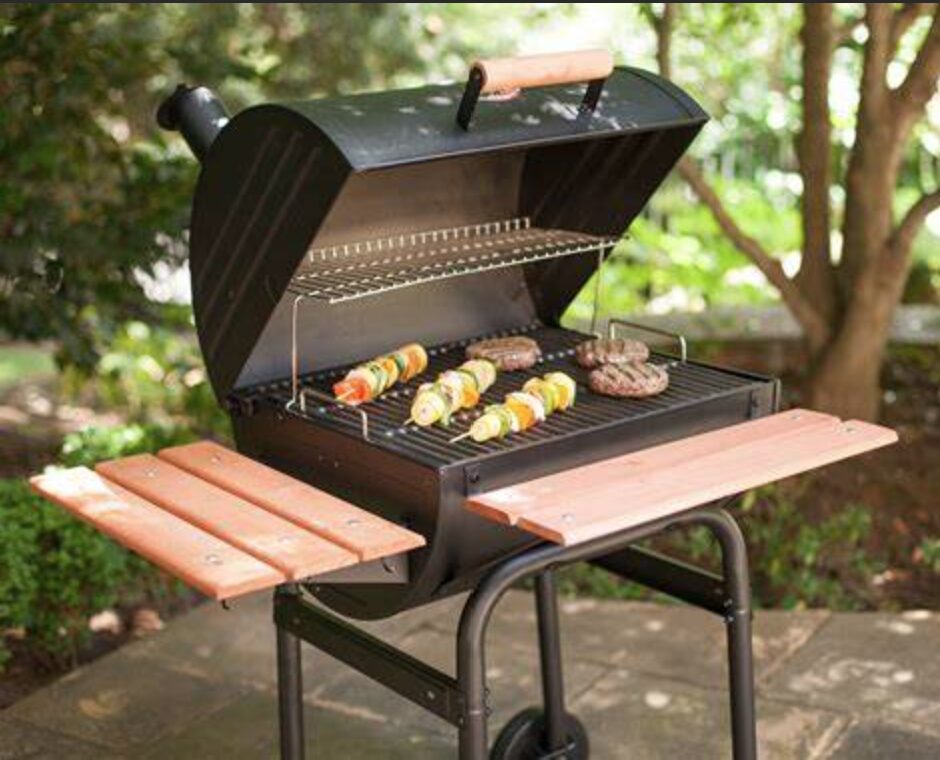Summertime means more time outdoors; for many, that means it’s grilling season. But grilling season comes with some risks: Thousands of people end up in the emergency room every year from accidents related to grills. Don’t let the potential danger overshadow your dinner; here are some grilling safety tips that every homeowner should know.
General Safety
Read the Manual
You may have grilled before, but if you are using a new grill, are a new homeowner with your first grill, or don’t grill frequently, take the time to read the owner’s manual first. Not only will this provide general information on grill operation and safety, but you might find some good recipes in it, too.
Clean Your Grill
Your grill should be thoroughly cleaned at the beginning of each season, but remember to clean it after each use. Built-up grease can cause flare-ups and fires.
Make Sure It’s on a Stable Surface
Position your grill on a flat surface to avoid tipping. If you’ve recently bought a new home and can’t find level ground, use concrete pavers or pea gravel to create a more stable surface.
Ensure Proper Ventilation
Never use a grill indoors or in an enclosed space. Choose an area with good airflow and plenty of room overhead for smoke and fumes to dissipate.
Charcoal Grill Safety
Start Your Grill Properly
Only use charcoal starter fluid meant for outdoor grilling. Gasoline and other flammable liquids can cause explosions or lead to uncontrollable fires that can quickly spread.
Cool Coals Properly
When you are done grilling, allow your coals to cool completely. There should be no heat coming off of them by the time you dispose of them. Use a metal or other fire-safe container for disposal.
Gas Grill Safety
Look for Leaks
As your grill ages, gas lines and connections can develop leaks as the material wears. Use a spray bottle to apply soapy water to the lines; if you see a bubble, you’ve got a leak.
Turn the Gas Off When Not in Use
Double-check that the gas supply is completely turned off before and after use. If you left the gas on accidentally, you may need additional propane. However, any leaked gas can also cause an explosion.
Open the Lid When Lighting
When lighting your grill, always start by opening the lid. This prevents gas buildup, especially if it takes a few tries to light the grill.
Locating Your Grill
Maintain a Safe Distance
It may be convenient to have your grill right up against your home. However, this presents a potentially serious fire hazard. Set up your grill at least ten feet away from your home (or as far as possible, in smaller spaces), as well as any deck railings or overhanging branches.
Pay Attention to Grilling Restrictions
Apartment dwellers may face more challenges when it comes to grilling. Balconies and other restricted areas can present a fire hazard for grilling. Check with your landlord to see if there are common areas where a grill can be used instead.
Personal Safety Guidelines
Wear Appropriate Clothing
Long sleeves and loose clothes have no place in grilling. Ensure your clothes are comfortable but well-fitted to keep them away from the flames and errant embers or sparks.
Watch Out for Kids and Pets
Children and pets can be a wonderful part of any barbecue, but not around the grill. Make sure these sometimes unpredictable guests are properly supervised at all times and remain a safe distance from the grilling area.
Be Ready for Emergencies
In most cases, those practicing smart grilling techniques should avoid dangerous situations. Still, it’s vital to be prepared just in case. Keep a fire extinguisher, bucket of sand, or garden hose nearby in case of an emergency.
Cooking Safety
Use Long-handled Tools
Don’t flip steaks with a fork, or try to use a regular spatula for burgers. Long-handled tools protect hands and arms from grill temperatures reaching 500 degrees or more.
Wear Gloves
If you are cooking over very high heat, using gloves designed for grilling can further protect your hands from burns. They should reach above your wrists and be made from fire-resistant leather or other heat-safe materials.
Avoid Flare-ups
A kiss of flame gives your grilled food a deliciously smoky taste, but flare-ups are dangerous. Manage your grill carefully to avoid these, and use as little fat or oil as necessary to reduce the available fuel.
Keep an Eye on the Grill
You’re not cooking on a crockpot — you cannot “set it and forget it” when food is on the grill. Stay close and never leave a grill unattended when in use.
Food Safety
Thaw Meat Properly
Improperly thawed meat can lead to uneven cooking and even food poisoning. Thaw the meat in the fridge overnight and bring it to room temperature before cooking. Meat can also generally be safely thawed using your microwave, though it should never be left to sit at room temperature for extended periods.
Use a Meat Thermometer
To further protect against foodborne illness, use a meat thermometer. This eliminates the guesswork and can help you grill your meat or fish to perfection every time.
Keep Raw and Cooked Food Separate
Use separate plates and utensils for raw and cooked food. This prevents cross-contamination and keeps everything safe. While it might require a bit more cleanup afterward, your immune system will thank you.
Enjoy Your Summer Grilling
Relaxing in the backyard with a grill session after a stressful day is easier when you follow these safety tips. Whether you’re buying or selling a house or just staying put, enjoy your summer – and your grill!
How to Choose the Outdoor Kitchen Layout That’s Right for You


